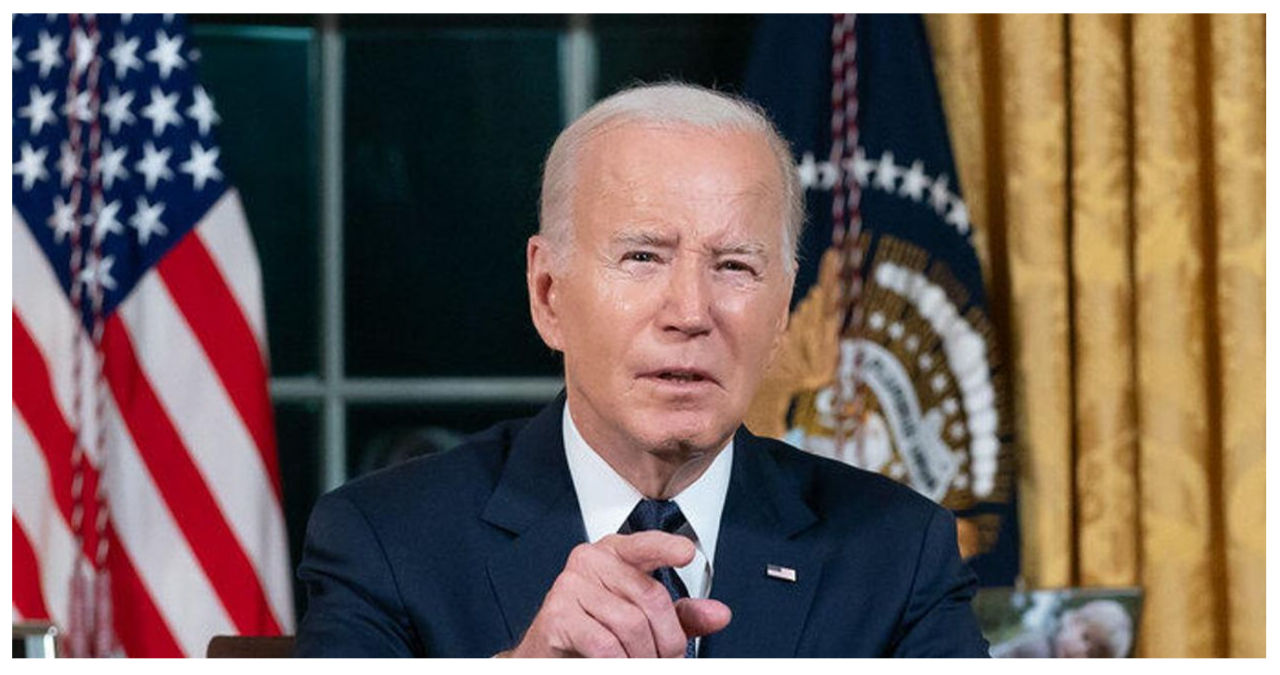The incompetence of President Joe Biden is becoming more evident, posing a significant challenge. However, many individuals view it as a situation that can be resolved simply by the Democrats replacing him with another candidate in the upcoming fall elections or the Republicans defeating him and gaining control of Congress.
The current federal government is not just a simple disaster; it is a continuous and ongoing catastrophe. It represents a significant departure from the fundamental principles outlined in our nation’s founding documents. Justice Ketanji Brown Jackson’s assertion that upholding the First Amendment would “hamstring” the federal government is a prime example of this prevailing mindset.
The Progressive politics that have gained momentum since the late nineteenth century have led to a significant concentration of power in the federal government and a select group of individuals who do not face popular elections. This has been enabled by a political Uniparty that is dedicated to expanding executive rule. As a result, a regime has emerged that claims an unlimited authority.
The principle of federalism, established in the nation’s founding documents, grants authority over matters not explicitly assigned to the federal government to the states and the people. However, progressivism has undermined this principle, leading to over a century of unconstitutional actions in Washington, DC. As a result, there has been a growing opposition not only in public opinion but also from state governments.
There is a growing trend of states expressing their opposition to federal laws and regulations by advocating for nullification. Nullification refers to the act of states declaring that they will not enforce federal decisions within their own borders. This serves as a strong example of the pushback against the authority of the central government.
In recent years, the states have initiated a movement by disregarding federal marijuana laws. This shift in attitudes has not been adequately acknowledged.
For the past two centuries, nullification has been seen as a threat to the credibility and stability of the national government by undermining its authority, and this sentiment has been shared by nearly every political faction in the United States. However, in recent years, many states have chosen to legalize or decriminalize the possession and sales of marijuana, despite it being against federal law. Surprisingly, the federal government allowed this to happen, with the Obama administration even cooperating in this nullification of federal law.
States have become more assertive over time, with the actions of Texas Governor Greg Abbott to protect the state’s border with Mexico being the most recent example. Despite objections and interference from the president, Abbott has remained steadfast in his decision.
A bill currently being considered by the Tennessee legislature, SB 2775, aims to establish a clear procedure for nullification. This legislation would enable the governor, any state court, or individual members of the legislature to declare a federal law or policy null and void. Additionally, the bill allows for a legislative vote to be triggered by various entities, such as a petition from the executive or legislative branches of 10 local governing authorities, or a group of 2,000 registered voters. As columnist Daniel Horowitz highlights in his article on The Blaze, this proposed bill seeks to restore state sovereignty through the process of nullification.
According to Horowitz, the process of nullification challenges the notion of federal supremacy by questioning whether laws fall within the federal government’s enumerated powers. He argues that the idea of judicial supremacy is a dangerous myth, as elected officials cannot uphold a court’s edict that violates the Constitution without betraying their oath to uphold it.
Thomas Jefferson articulated the argument for nullification in his Kentucky Resolution of 1798. In it, he emphasized that the government established by the Constitution should not be the sole or ultimate arbiter of the limits of its own powers. By doing so, it would prioritize its own discretion over the Constitution itself. This perspective is highlighted by Horowitz.
Nullification plays a central role in the fundamental idea behind the U.S. government, which can be described as granting veto power to all. The Constitution empowers each branch of the national government with the ability to veto actions taken by the other branches. This is achieved through congressional votes, the presidential veto authority, and the process of judicial review. Furthermore, the Ninth and Tenth Amendments extend this veto power to both the states and the people.
The power of the federal government is explicitly limited by the Constitution, which grants authority and responsibility to all three branches, as well as the states and the people through the Bill of Rights, to ensure that the government remains within these boundaries.
Each branch of the federal government, as well as the states and the people, possesses the power to veto actions taken by the federal government. According to the Constitution, for any action to have the rightful force of law, it must be agreed upon by all parties involved.
Under the principles of unrestricted federal and judicial supremacy, the United States government has acquired such an immense amount of power that it is now incapable of fulfilling its fundamental responsibilities, let alone fulfilling all of its commitments. Throughout history, it has been demonstrated that an excessive concentration of power contributes to the downfall of civilizations. Recently, the Congressional Budget Office published a report projecting that the federal debt will soon reach unprecedented levels as a proportion of the national economy, which will undermine the economy and severely restrict policy options. We are currently speeding towards the imminent collapse of the government.
Now, state governments that have been duly elected are rightfully advocating for decentralization and a restoration of the rule of law, asserting their rights as outlined in the nation’s founding documents. This is one of the few positive outcomes arising from the significant damage caused by the current regime up to this point.



